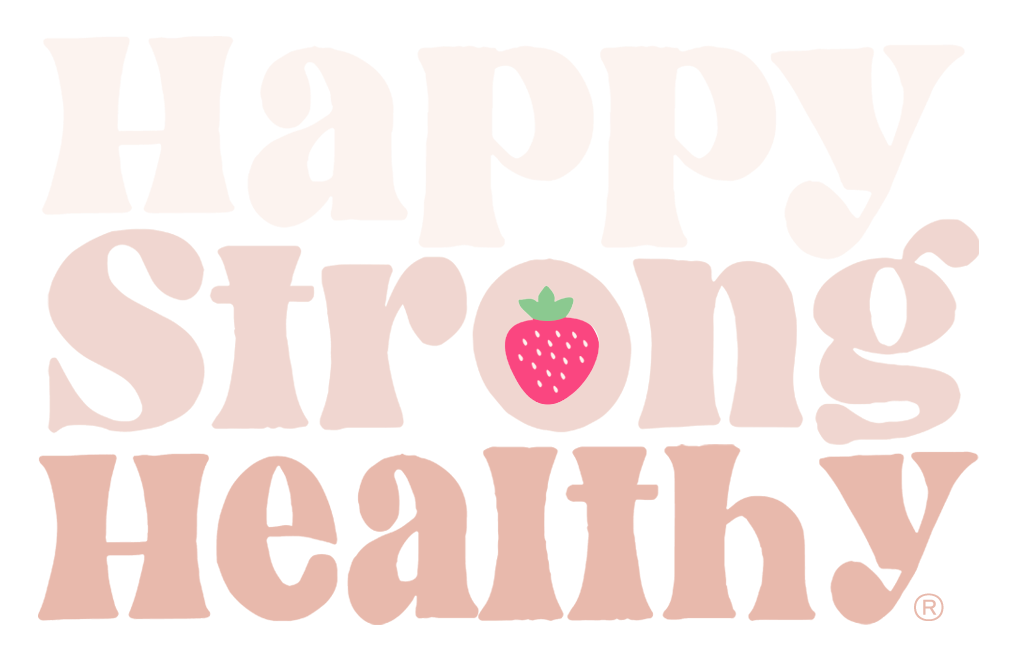Why Has My Period Disappeared? An Introduction to Amenorrhea
We know periods can be a little, well…messy. However, our body’s ability to menstruate, despite the cramping and mood swings, is a sign that our body’s reproductive system is healthy and working properly! A life without a period may seem ideal, but not having one can cause serious health problems later on. Keep reading to learn why our period “disappears”, who loses their period, what health consequences this can have, how we can get a period back with nutrition.
Amenorrhea is defined as the absence of menstruation, or a monthly period, for one or more months. Amenorrhea comes in two forms: primary and secondary. Primary amenorrhea refers to the absence of menstruation in someone who has not had a full period by age 15. Though anatomical problems can cause this to happen, the most probable causes of primary amenorrhea relate to unbalanced hormone levels. Someone who has secondary amenorrhea would have a normal, cyclic period for months or years, but then notice an absence of her period for three months in a row or more.
The world we live in is full of the ‘hustle and bustle’ mentality: for many, high stress directly correlates with a heightened feeling of success and validation. Excessive exercise and ‘healthy’ eating (i.e., restrictive eating) are seen as glamorous, while lack of sleep and burnout are both too commonplace. This type of lifestyle takes a drastic toll on the body; when our body needs to prioritize what is essential to our survival during stress – think breathing, keeping our heart beating – it automatically chooses to stop the processes that are not deemed necessary. Essentially, our bodies choose a beating heart over a monthly period; but, missing a period for months in a row can still have dangerous, lifelong health effects.
Amenorrhea has varying causes, but all have one common denominator: excessive stress on the body.
Low Body Weight:This interrupts the normal hormonal functioning of our body, leading to the cessation of ovulation. Those struggling with eating disorders oftentimes lose their period due to an imbalance of hormones.
Excessive Exercise: Working out can be a great stress reliever and allow us to clear our minds from the other demands that we have. However, too much of a good thing can be a bad thing. Exercising excessively puts a ton of stress on our bodies: high stress and high energy expenditure as a result of excess movement all contribute to the loss of a period.
Stress: Stress is a word heard so often these days, it might almost seem like it’s losing its meaning. But, mental stress temporarily alters the functioning of the hypothalamus, a region of the brain that controls the hormones that regulate menstruation. When this area isn’t functioning properly, we don’t get a period. But, decreasing stress has been linked to resuming a normal period.
Relative Energy Insufficiency: Our bodies need a certain amount of calories to keep our heart beating, digestion working properly, and yep, you guessed it, getting our period each month. When we are constantly burning more calories than we’re consuming, we put ourselves in a negative caloric balance. This leads to major disruptions in our hormones that control our menstruation.
Now that we’ve learned what causes amenorrhea, let’s take a look at the dangers this poses to our bodies. Research has found that the cessation of menstrual periods in those with eating disorders has been compared to mimic the start of menopause in older women.
Infertility and Problems with Pregnancy: If the reproductive system isn’t working properly, we won’t be able to get pregnant.
Osteopenia: Osteopenia is a depletion of calcium into the bones, leading to weak bones and thus an increased fracture rate.
Osteoporosis: A long term effect of osteopenia, osteoporosis is a chronic disease characterized by bones of low density, or brittle bones. While many medical concerns can be reversible with adequate nutrition, loss of bone density is often irreversible.
Cardiovascular Disease: CVD includes heart attack and problems within blood vessels and the heart muscle that occur as a result of inadequate nutrition.
Psychological Stress: Those who don’t get a period may feel worried, and, in turn, more stressed. This cycle of stress needs to be broken before a normal period can resume.
Other dangers of amenorrhea include:
Difficulty sleeping
Mood changes
Night sweats
A shrunken ovaries and uterus
Delayed start of one’s first period as a result of an eating disorder
Amenorrhea is observed in those struggling with eating disorders, primarily due to a low body weight and changes in hormones. Between 66% and 84% of females with anorexia report not getting a period. 7% to 40% of females with bulimia nervosa report amenorrhea.
Treating Amenorrhea with Nutrition
Treating amenorrhea is possible, and is most often primarily done through renourishment, led by a Registered Dietitian. In working together with an RD, keep these main food groups in mind. Overall, meeting calorie intake needs, eating enough protein, and incorporating healthy fats into meals are the go-to’s to getting a period back for good.
Whole Grains: Adequate carbs in general are ESSENTIAL, but, whole grains, like oats and whole grain breads, are known to help with inflammation and assist in balancing hormone levels. Furthermore, they’re so versatile! Enjoy toast with nut butter and some fruit, avocado toast, or baked oats for your next delicious breakfast.
Protein: Protein can come from both vegetarian and animal sources. When under consuming calories, the body burns protein (from the food we eat and from our muscles) for energy. As muscle decreases, we become weaker. Work alongside an RD to set and understand how to meet your personal protein goals.
Calcium: Calcium is needed to strengthen and keep our bones strong, so that we can do all of the activities we love and enjoy! Include cereal with milk at breakfast, a latte with milk as an afternoon pick-me-up, and yogurt with berries for a nutritious and delicious evening snack.
Healthy Fats: Fats are your friend! Incorporating fat into meals throughout the day helps our body absorb vitamins A, D, E, and K. Foods like peanut butter, salmon, olive oil, and avocado pack in healthy fats (and also taste great!).
Vitamin D: Vitamin D helps our bodies absorb Calcium, which, as we know, helps keep our bones strong and healthy. We most easily get this vitamin from the sun; now that it’s summer, enjoy some extra time outside! When the sun isn’t shining, look for foods fortified with vitamin D, like milk, cereals, and fish such as salmon.
Exercise and Amenorrhea
Our bodies are extremely sensitive to excessive stress, and this includes exercise. The combination of low body weight and intense exercise leads the body to believe it’s in a “starvation state”. When the intake of calories is very low (inadequate nutritional intake), or calories burned through movement are very high, our body begins to shut down the organs and processes not absolutely essential for survival. This, in turn, causes the absence of our period. Exercise during this time may need to be put on pause to let the body get back to a healthy weight state. When a period returns for three or more consecutive months, work alongside an RD to discuss incorporating exercise properly into day-to-day life.
All in all, the restoration of the monthly menstrual cycle IS possible through the understanding of why this is happening and collaborating with an RD to set and meet specific nutrition goals. Remember, many of the long term health effects are reversible! Addressing the stressors on the body can help restore functioning of the hypothalamus and lead to balance within our reproductive systems and overall body, resulting in the resumption of a monthly period.
References:
https://www.mayoclinic.org/diseases-conditions/amenorrhea/symptoms-causes/syc-20369299
https://www.verywellmind.com/eating-disorders-periods-and-bone-health-3994438
https://www.ncbi.nlm.nih.gov/pmc/articles/PMC6079277/
https://uscfertility.org/5-things-need-know-exercise-induced-amenorrhea/
https://health.clevelandclinic.org/is-it-normal-to-lose-your-period-because-of-exercise/
Written by Serena Pratt
Hi, I’m Serena! I’m a first year grad student at Columbia University studying Nutrition. I’m a former figure skater for Team USA, and because of that, I’ve had my own struggles relating to my complex relationship with food. Learning about nutrition has helped me to understand more about my personal journey, but has also led me to wanting to help others who may feel the same way! I’ve since learned how to listen to my body, can enjoy foods again, and am excited to share with and guide others in doing the same.
Learn more about me and the HSH offerings here.











































